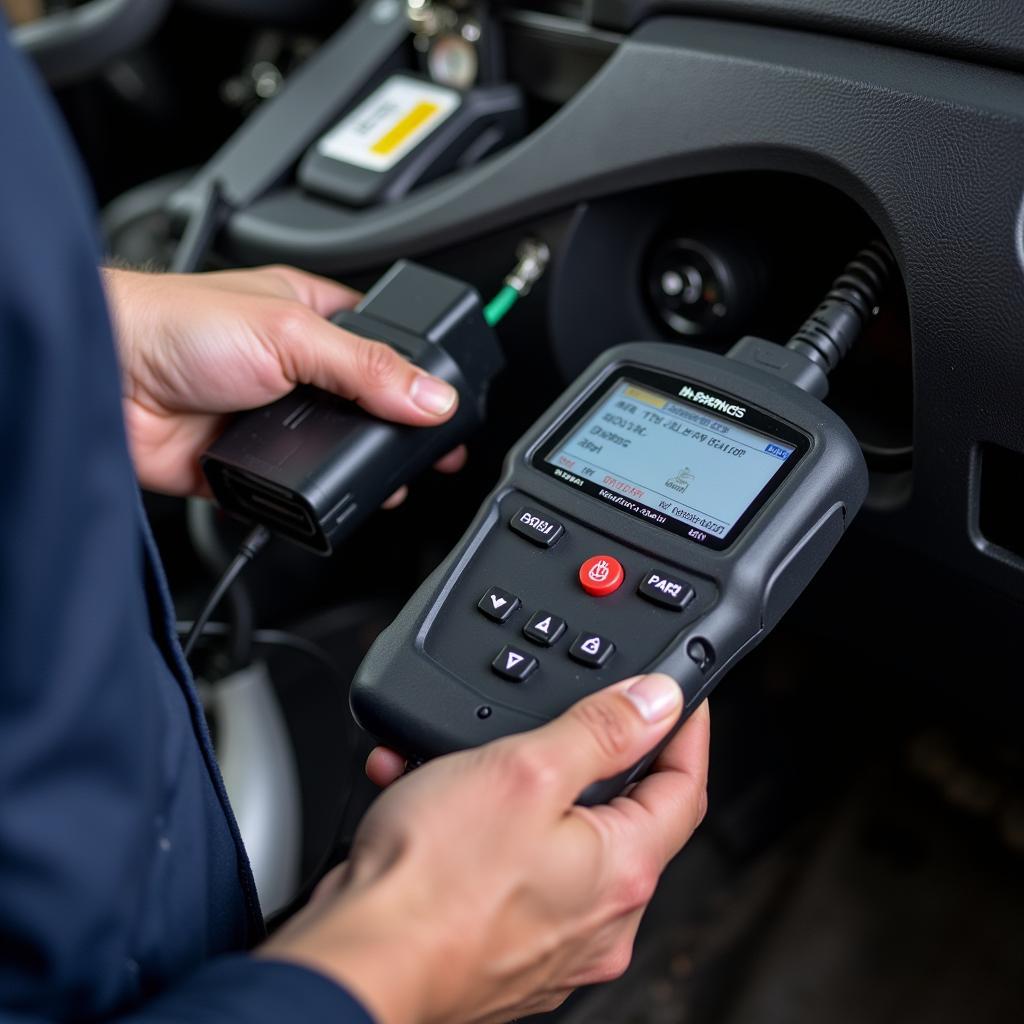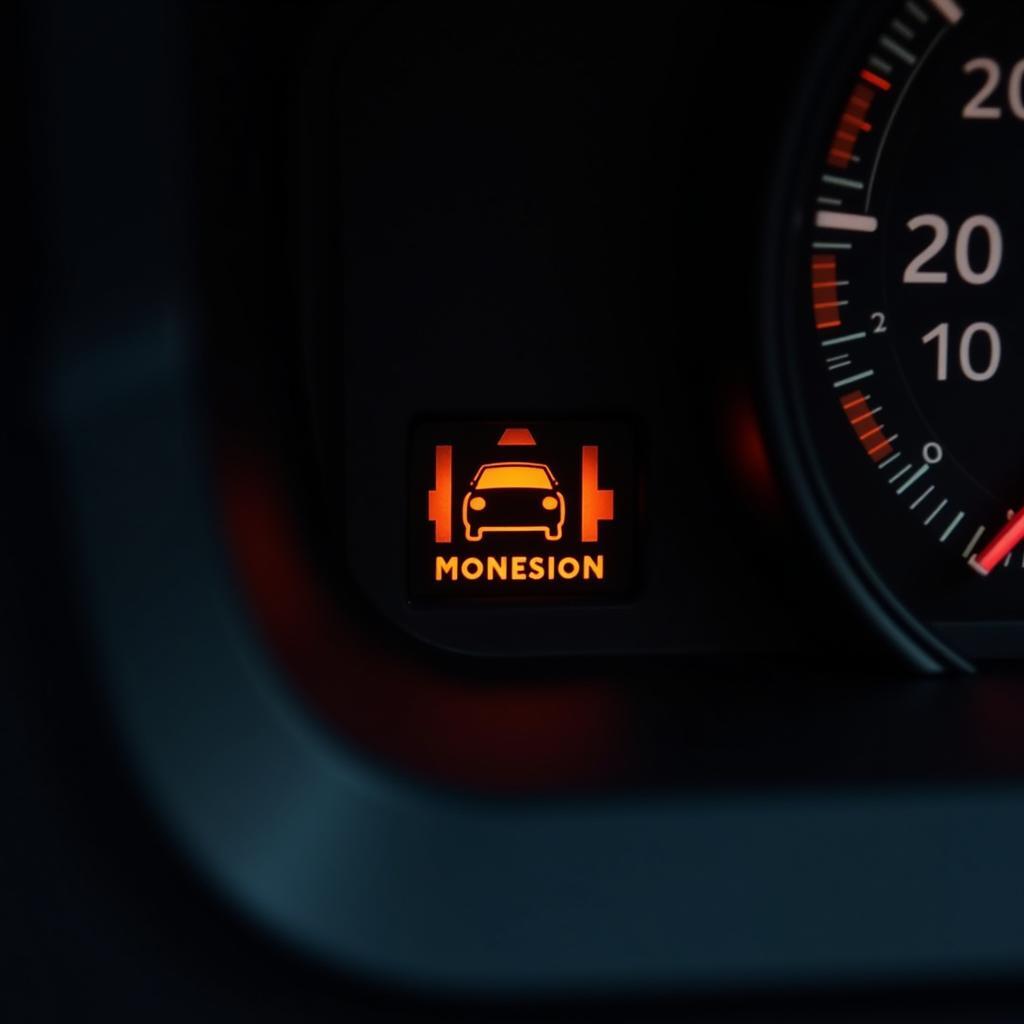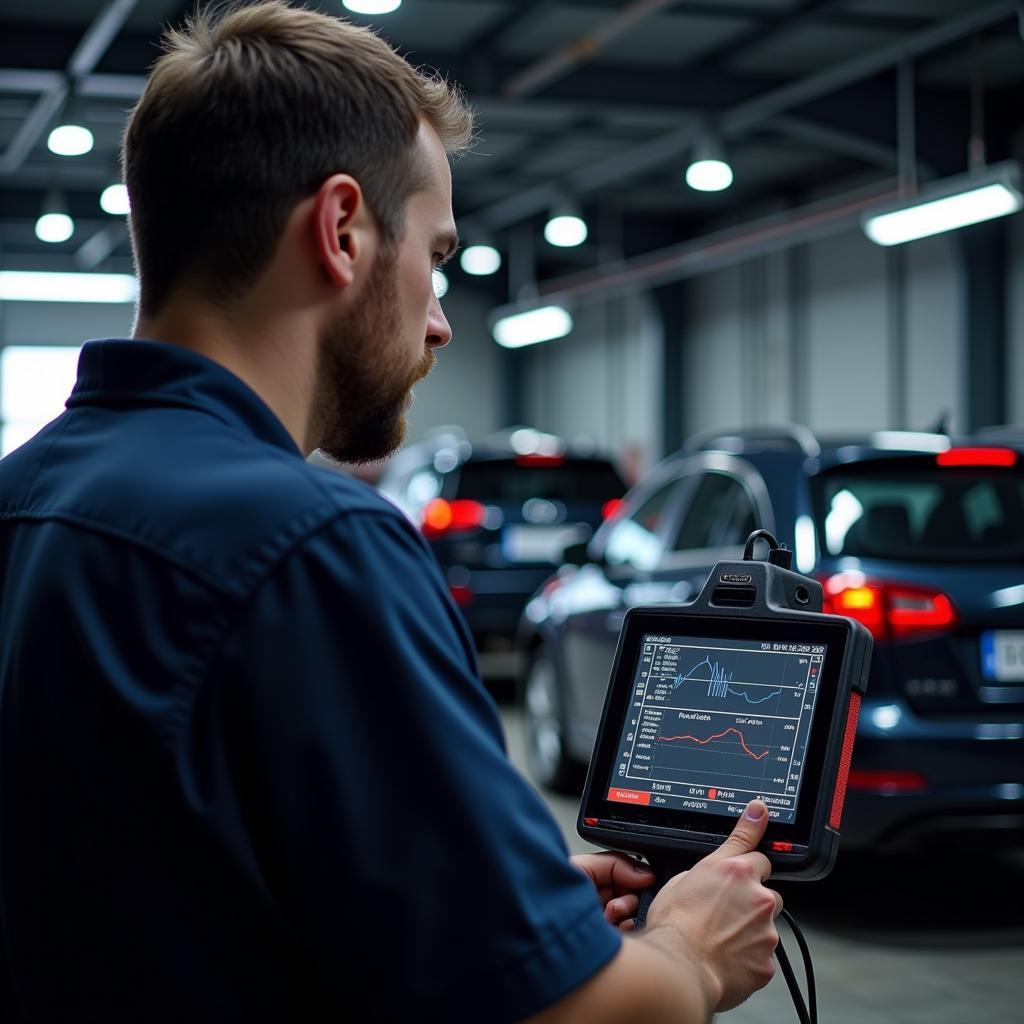Getting a check engine light can be stressful. It could signal a minor issue or a major problem. Many car owners turn to AutoZone for a free car diagnostic test to understand the issue. But what does this test really tell you, and is it enough to diagnose your car trouble? This article will explore everything you need to know about Autozone Car Diagnostic Tests and what to do next.
Understanding the AutoZone Car Diagnostic Test
AutoZone, and many other auto parts stores, offer free OBD-II code reading as a service to customers. This test uses a handheld scanner that plugs into your car’s OBD-II port, usually located under the dashboard on the driver’s side.
 Mechanic connecting OBD2 Scanner
Mechanic connecting OBD2 Scanner
The scanner retrieves diagnostic trouble codes (DTCs) stored in your car’s computer. These codes are like clues, indicating potential issues within your car’s systems, such as the engine, transmission, emissions, or other components.
Limitations of a Free AutoZone Car Diagnostic Test
While a free car diagnostic test at AutoZone can be helpful as a first step, it’s important to understand its limitations:
- Codes, Not Diagnoses: The test only provides codes, not actual diagnoses. A code points to a potential issue but doesn’t explain the root cause.
- Limited Scope: The free test primarily focuses on engine-related problems. It may not detect issues in other systems like ABS, airbags, or advanced driver-assistance systems.
- No Repair Advice: AutoZone employees are generally not qualified to provide specific repair advice. They can offer potential parts based on the codes but can’t diagnose the problem fully.
 Car Dashboard with check engine light illuminated
Car Dashboard with check engine light illuminated
What to Do After an AutoZone Car Diagnostic Test
- Write Down the Codes: Jot down the exact DTCs provided by the scanner. This information will be crucial if you seek further diagnosis or repair.
- Research the Codes: You can easily find information online about specific DTCs. Websites and forums dedicated to your car model can provide insights into common causes and potential solutions.
- Decide Your Next Steps: Armed with the code information, you can:
- Attempt DIY Repairs: If you’re mechanically inclined and the issue seems straightforward based on your research, you might attempt to fix it yourself. Be cautious, as misdiagnosis can lead to further problems.
- Consult a Mechanic: For complex issues or if you’re unsure about DIY repairs, it’s best to consult a qualified mechanic. They have the expertise and tools for accurate diagnosis and repair.
When to Seek Professional Car Diagnostics
A free car diagnostic test can be a good starting point. However, consider professional diagnostics in the following situations:
- Multiple Warning Lights: If multiple warning lights illuminate on your dashboard, it indicates a potentially serious issue that requires immediate attention from a professional.
- Recurring Problems: If the check engine light returns after clearing codes or a DIY repair, a deeper diagnosis is necessary to identify the underlying cause.
- Complex Systems: For problems related to transmission, ABS, airbags, or other advanced systems, professional diagnostics with specialized equipment are crucial.
Choosing the Right Diagnostic Service
free car diagnostics test are helpful, but they shouldn’t be your only source of information. When choosing a diagnostic service, consider:
- Qualifications: Ensure the mechanic or shop has ASE-certified technicians specializing in diagnostics.
- Equipment: Advanced diagnostic tools are essential for accurate results, especially for complex systems.
- Reputation: Look for shops with positive reviews and a track record of reliable service.
 Mechanic using a diagnostic tool to assess a vehicle’s issue in a professional auto repair shop.
Mechanic using a diagnostic tool to assess a vehicle’s issue in a professional auto repair shop.
Conclusion
An AutoZone car diagnostic test can be a useful initial step in understanding your car’s warning lights. However, it’s crucial to remember its limitations. While it can provide helpful codes, a free test is not a substitute for a comprehensive diagnosis by a qualified mechanic. For accurate diagnosis and peace of mind, especially with complex or recurring issues, consulting a trusted mechanic is always the best course of action. By understanding the capabilities and limitations of car diagnostic tests, car owners can make informed decisions about their vehicle’s maintenance and repairs.

Leave a Reply